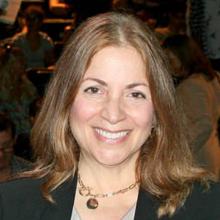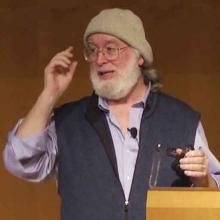
Lori Marino is a neuroscientist and expert in animal behavior and intelligence, formerly on the faculty of Emory University.
Lori received her Ph.D. in biopsychology in 1995 and is internationally known for her work on the evolution of the brain and intelligence in dolphins and whales (as well as primates and farmed animals). She has published over 130 peer-reviewed scientific papers, book chapters, and magazine articles on marine mammal biology and cognition, comparative brain anatomy, self-awareness in nonhuman animals, human-nonhuman animal relationships, and the evolution of intelligence.
She is also an expert on marine mammal captivity issues such as dolphin-assisted therapy and the educational claims of the zoo and aquarium industry.
In 2001, she co-authored a ground-breaking study offering the first conclusive evidence for mirror self-recognition in bottlenose dolphins, after which she decided against further research with captive animals.
Lori is also the Founder and Executive Director of The Kimmela Center for Animal Advocacy, which focuses on bridging the gap between academic research and on-the-ground animal advocacy efforts, as well as the President of the Whale Sanctuary Project
She has appeared in several films and television programs, including the 2013 documentary Blackfish about killer whale captivity, Unlocking the Cage, the 2016 documentary on the Nonhuman Rights Project, and Long Gone Wild, the 2019 documentary that picks up where Blackfish left off and the work of the Whale Sanctuary Project begins.

Laurance Doyle, Ph.D., is a principal investigator with the SETI Institute where his main projects have been the photometric detection of information theory to animal communications and extrasolar planets; the application of information theory to animal communications; the ecology of circumstellar habitable zones; and the application of quantum physics to solve certain astronomical problems. He has taught quantum physics, thermodynamics, introductory astronomy, history of science, and Native American history at Principia College in Illinois. He has lectured for the Christian Science Board of Lectureship and is a contributing editor for the Christian Science Sentinel and the Christian Science Journal.
Dr. Doyle is a faculty member at Principia College and the founding Director of Principia College’s Institute for the Metaphysics of Physics, founded in 2014.
Registration opens Oct 2, 2019.
